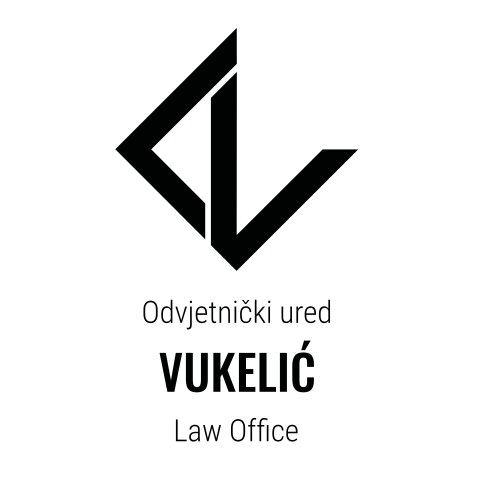Best Corporate & Commercial Lawyers in Croatia
Share your needs with us, get contacted by law firms.
Free. Takes 2 min.
Or refine your search by selecting a city:
List of the best lawyers in Croatia
About Corporate & Commercial Law in Croatia
Corporate & commercial law in Croatia governs all aspects of establishing, operating, and dissolving business entities, as well as regulating commercial transactions and trade practices. This field covers a broad range of activities, from forming companies and partnerships to negotiating contracts, protecting intellectual property, and ensuring legal compliance in day-to-day business operations. Croatian corporate & commercial law is shaped by both domestic regulations and the requirements of European Union legislation, providing a framework to ensure fair, transparent, and competitive business practices within the country.
Why You May Need a Lawyer
Engaging a corporate & commercial lawyer in Croatia is essential in many situations, such as:
- Establishing or registering a new business entity
- Mergers, acquisitions, or restructuring of companies
- Drafting and reviewing commercial contracts and agreements
- Resolving disputes between shareholders or business partners
- Ensuring compliance with regulatory requirements
- Protecting intellectual property rights
- Handling issues related to employment, leasing, or franchising
- Dissolution or liquidation of companies
- Cross-border transactions and international trade
- Advising on tax efficiency and strategic planning
In these and other matters, a lawyer can provide vital advice, represent your interests, minimize risk, and help you navigate the complex regulatory environment.
Local Laws Overview
Corporate and commercial activities in Croatia are primarily regulated by several key pieces of legislation, including the Companies Act, the Trade Act, the Obligations Act, and specific sectoral laws. The Companies Act sets out the rules for establishing and running limited liability companies (d.o.o.), joint-stock companies (d.d.), partnerships, and sole proprietorships. It specifies procedures for company formation, management, reporting, and dissolution.
Commercial contracts and obligations are governed by the Obligations Act, which outlines the requirements for the validity, performance, and enforcement of commercial agreements. Croatia is also subject to EU competition and consumer protection rules, promoting transparency and fair trade. Local authorities such as the Commercial Courts and the Financial Agency (FINA) play key roles in the registration process, dispute resolution, and corporate compliance.
Foreign investors benefit from national treatment and typically face no limitations on company formation, though some activities may require special licensing. Taxation, reporting, and regulatory compliance are enforced rigorously, making thorough legal advice crucial for avoiding penalties and ensuring smooth business operations.
Frequently Asked Questions
What are the main types of companies in Croatia?
The primary company types include the limited liability company (d.o.o.), joint-stock company (d.d.), general partnership (j.t.d.), limited partnership (k.d.), and sole proprietorship. The d.o.o. is the most commonly used structure due to its simplicity and limited liability for shareholders.
What is needed to register a company in Croatia?
To register a company, you typically need a founding act or articles of association, proof of initial capital, identification documents for founders, and to submit your registration application with the Commercial Court and Financial Agency (FINA). Registration requires payment of relevant fees and compliance with legal procedures.
Can foreign nationals own and manage companies in Croatia?
Yes, both EU and non-EU nationals can generally own and manage companies in Croatia. However, certain activities may require additional permits or have residency requirements for directors.
What taxes apply to companies in Croatia?
Companies are subject to corporate income tax, value added tax (VAT), and other possible levies such as contributions and local taxes. The standard corporate income tax rate is 18 percent, though lower rates may apply to smaller businesses.
How are commercial contracts regulated?
Commercial contracts in Croatia are primarily governed by the Obligations Act. Contracts should clearly state the rights and obligations of the parties, and they must comply with mandatory provisions regarding validity and performance.
What are the main compliance requirements for companies?
Companies must maintain proper accounting records, file annual financial statements, hold general meetings, update corporate records, and comply with employment, tax, and data protection laws. Failure to comply can result in fines or other sanctions.
How are business disputes resolved in Croatia?
Business disputes are commonly resolved through negotiation, mediation, or before the Commercial Courts. Arbitration is also available and recognized under Croatian law, particularly in international commercial matters.
Are there any restrictions on foreign investment?
Croatia generally welcomes foreign investment and applies the principle of national treatment. Certain sectors, such as defense, energy, or real estate near the coastline, may require additional regulatory approvals or restrictions.
How can intellectual property be protected?
Intellectual property protection is available through national registration of trademarks, patents, design rights, and via the EU Intellectual Property Office for broader protection. Enforcement can be sought through civil, administrative, or criminal proceedings in case of infringement.
What is the process for liquidating a company?
Company liquidation involves notifying creditors, settling outstanding debts, distributing remaining assets among shareholders, and applying for company deregistration with the Commercial Court. The procedure is strictly regulated and can take several months to complete.
Additional Resources
- Croatian Chamber of Economy (HGK) - provides business information and support
- Financial Agency (FINA) - manages company registration and financial reporting
- Commercial Courts of Croatia - handles company registration and business disputes
- State Intellectual Property Office - oversees IP registration and protection
- Ministry of Economy and Sustainable Development - offers guidance on business operations and legislation
- Tax Administration (Porezna uprava) - provides tax information and compliance support
Next Steps
If you are planning to start, expand, or manage a business in Croatia and need legal assistance with corporate & commercial matters, consider taking the following steps:
- Define your business needs and identify potential legal challenges
- Gather all relevant documents and information about your business intentions
- Contact a reputable corporate & commercial lawyer or law firm in Croatia
- Prepare questions and discuss your options, legal obligations, and timelines
- Follow your lawyer’s guidance to ensure compliance and minimize risks
- Stay updated on any legislative changes that could affect your business
Seeking early and specialized legal advice can help you avoid costly mistakes, protect your interests, and ensure the long-term success of your business in Croatia.
Lawzana helps you find the best lawyers and law firms in Croatia through a curated and pre-screened list of qualified legal professionals. Our platform offers rankings and detailed profiles of attorneys and law firms, allowing you to compare based on practice areas, including Corporate & Commercial, experience, and client feedback.
Each profile includes a description of the firm's areas of practice, client reviews, team members and partners, year of establishment, spoken languages, office locations, contact information, social media presence, and any published articles or resources. Most firms on our platform speak English and are experienced in both local and international legal matters.
Get a quote from top-rated law firms in Croatia — quickly, securely, and without unnecessary hassle.
Disclaimer:
The information provided on this page is for general informational purposes only and does not constitute legal advice. While we strive to ensure the accuracy and relevance of the content, legal information may change over time, and interpretations of the law can vary. You should always consult with a qualified legal professional for advice specific to your situation.
We disclaim all liability for actions taken or not taken based on the content of this page. If you believe any information is incorrect or outdated, please contact us, and we will review and update it where appropriate.
Browse corporate & commercial law firms by service in Croatia
Croatia Attorneys in related practice areas.
Browse corporate & commercial law firms by city in Croatia
Refine your search by selecting a city.

















